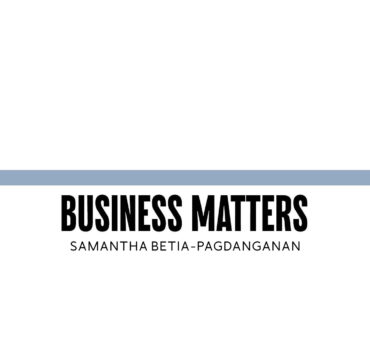What hurts most about living in the age of the unthinkable

In Richard Heydarian’s column, (see the ”The age of the unthinkable,” 6/17/25), the author has clearly recognized and analyzed the unthinkable situation in the Philippines and worldwide. In contrast, I am considerably more skeptical about the survival of the human species. This is based on observations of global political, economic, military, and environmental developments.
For the first time in its history, the United States is moving toward an authoritarian regime. In Africa, too many children are still dying of hunger and becoming infected with HIV. In Europe, all it takes is a spark and the war could escalate. The same applies to the conflict between Israel and Iran, Pakistan and India, or China and Taiwan.
Globalization could bring great benefits, but it has been handled incorrectly. Too many populists are succeeding in blinding people and convincing them of nonsense. The climate crisis is worsening, but everyone is going their own way, or worse, they are denying the existence of a climate crisis. Reminds me of a pope’s statement that the devil’s greatest success was to make us believe He didn’t exist.
We haven’t learned much about solidarity from the pandemic either. Ebola outbreaks keep occurring in Africa. As long as everything is far away from us and doesn’t reach our neighborhood, Ebola is of little interest. If one day the first outbreaks occur in the immediate vicinity, then panic will erupt, and the question will arise: “What now?” Well, then it’s too late.
In a Level 4 biosafety laboratory, I once had the opportunity to take a look at an Ebola virus through an electron microscope. It looks harmless, like a small worm, except you can’t crush this “worm” with your foot. You can’t wait until a problem knocks on your door.
Today, in the globalized world, we rely on solidarity and cooperation. The outdated friend-enemy paradigm no longer exists. My philosophy professor once quoted Sun Tzu from his book “The Art of War”: “If you know yourself and your enemy, you need fear no outcome of a hundred battles. If you know yourself but not the enemy, for every victory you achieve, you will suffer a defeat. If you know neither the enemy nor yourself, you will lose in every battle.”
In other words, knowledge determines the outcome of everything in life and the world. The more knowledge we acquire, the higher the probability that the human species will survive. We always think of ourselves as so civilized, yet we’re only a stone’s throw away from the Neanderthals. A nuclear war would destroy everything.
Here’s a personal experience: I was recently discussing with an intelligent and friendly philosopher the threat of another war, which, in my opinion, would seriously endanger the existence of humanity, and I remarked that only a supranational organization could guarantee protection against this danger. Then my friend, who is also a member of the Mensa Club, said very calmly and collectively: “Why are you so vehemently against the disappearance of humanity?”
When I read the news every day, I’m slowly having to take his side. The killing of children is what hurts my heart the most, regardless of whether it’s through hunger, poverty, disease or weapons. A line must be drawn under this. It’s not always the strongest who is right, but the one who defends the truth.
JÜRGEN SCHÖFER, PH.D.,
Biopreparat.Schoefer@gmail.com

















